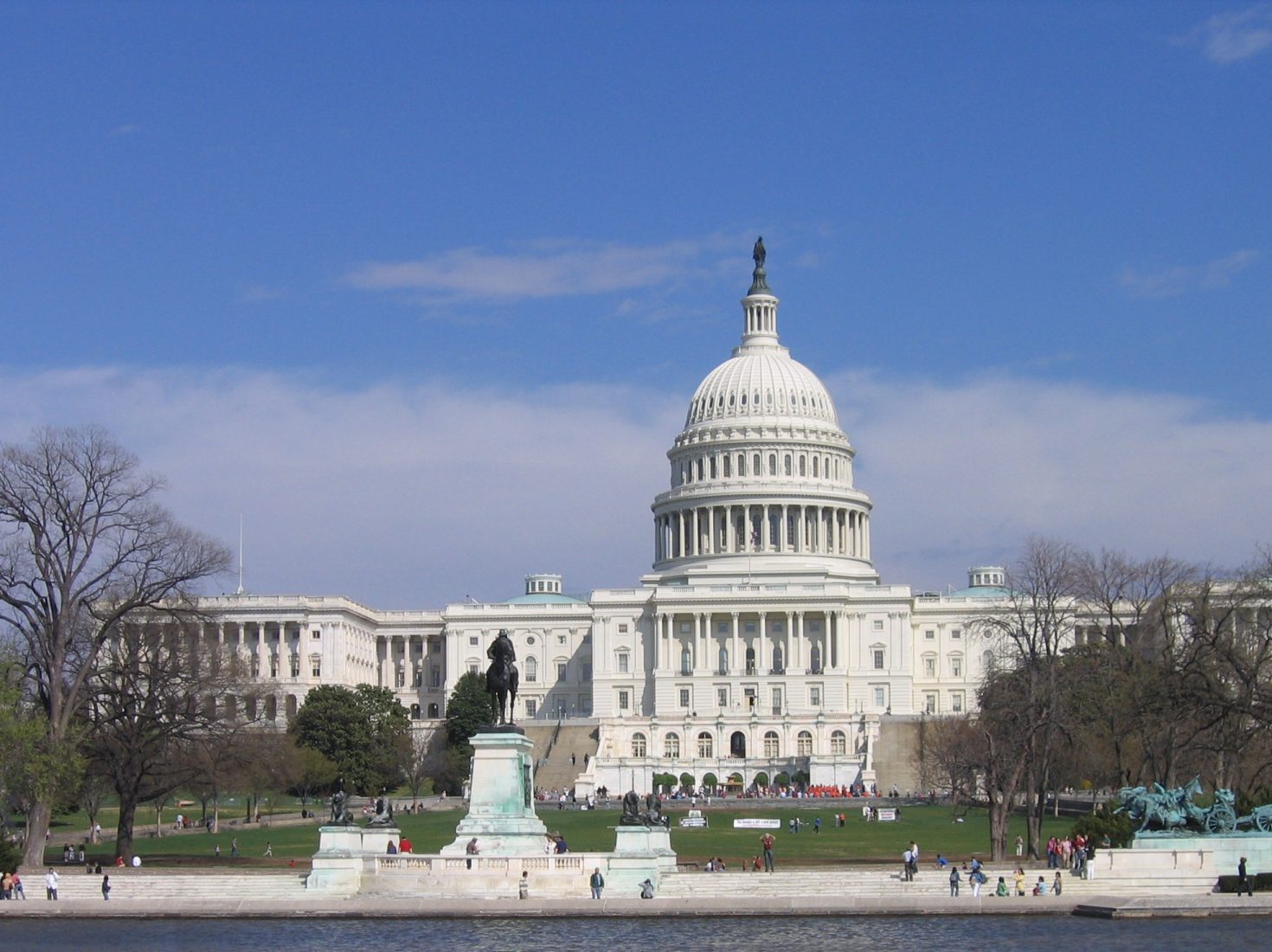On February 8, 2024, Mayor Muriel Bowser presented the Zero Waste DC Plan to the Council, outlining policies, programs, and initiatives to meet the District’s aim of reducing per capita waste generation by 15% and transitioning from a disposable culture to a circular economy. Of the 43 actions in the plan, a handful are essential for building owners and design professionals to know about now.
Overview of the Zero Waste DC Plan
In 2013, the District enacted the Sustainable DC Plan and established the ambitious goal of diverting 80% of the citywide waste stream away from landfills and incineration. For 2018, that citywide waste stream was estimated at over 1.1 million tons. Previously established guidelines from the 2019 Sustainable DC 2.0 Plan and the Zero Waste Omnibus Amendment Act of 2020 guided development of the Zero Waste DC Plan, finalized in early 2024 after years of research and public engagement. Originally, the target year to achieve 80% diversion of solid waste was 2032, but technical analysis that modeled rates of adoption, participation, and materials capture guided extension of the zero-waste target year to 2040.
What most DC residents and business owners will be talking about in the months ahead are the plan provisions for phasing out single-use plastics and other disposable items beginning next year, with a ban on throwaway plastics by 2030. Other noteworthy action items include mandatory recycling and composting, policies to increase reusable and refillable packaging, and requirements for donation of surplus food and materials.
What might not be the talk of the town – at least not right away – are some of the demands on building owners and design professionals that will impact construction projects.
Construction and Demolition
The primary objective of the Zero Waste DC Plan is articulated in “Goal 1: Reduce Per Capita Waste Generation.” Without a significant drop in waste, the plan will fail to achieve the 80% cut in the volume of material that winds up in landfills and incinerators. Of critical importance to building owners, property managers, and design professionals is Action 5 under this Goal, which calls for updating the DC Green Construction Code to require all new construction, demolition, and building retrofit projects to submit a Deconstruction Plan. Eighty percent of recoverable materials, including lumber, metal, stone, brick, and electrical and plumbing fixtures, will need to be salvaged and contributed toward the development of affordable housing. How this will be achieved is yet to be determined, but the timeframe for implementation is listed as “Medium Term,” which could be as soon as five years from now.
In the short term, Action 25 seeks to expand Extended Producer Responsibility requirements for hard-to-recycle materials, including some construction waste, such as paint, carpet, textiles, and solar panels. Upon implementation, anticipated within the next few years, disposal of covered materials in landfills or incinerators will be banned.

Recycling and Composting
Under “Goal 3: Increase Recycling and Composting Participation and Accessibility,” Action 14 calls for adoption of a universal recycling and composting ordinance that will require owners and facility managers of all commercial, institutional, governmental, and multi-family residential buildings to provide for the separation and collection of recyclable materials (e.g. plastics, glass, paper, aluminum, and cardboard), as well as compost (including food scraps and compostable containers). The plan looks to adopt this ordinance by 2025, which means facility managers should plan as soon as possible for this change in operations. Design professionals and property owners alike should consider the space requirements for sorting and collection.
To this end, Action 24 calls for revision of the DC Green Construction Code to require all new multi-family residential construction to include dedicated space for recycling and composting. By 2032, existing multi-family residential properties must be retrofitted to meet this requirement, as well.
Enforcement
Community education is a key part of the plan, from training programs for property managers on preventing food waste to hands-on learning about composting in school cafeterias. Robust enforcement, though, is also a critical component. Action 38 aims to increase the number of inspectors – and impose fines – for building owners and businesses that fail to comply. To place oversight directly into the hands of the community, Action 39 establishes a new Zero Waste Tip-Line for residents to report non-compliant commercial buildings and businesses.
Zero Waste Financial Assistance
Implementing recycling and composting collection, providing for recoverable construction waste diversion, and arranging producer recovery of hard-to-recycle materials, along with navigating operational changes to eliminate food waste and disposable products, won’t be cheap. Under “Goal 5: Build an Inclusive and Local Circular Economy,” Action 32 calls for expanding financial assistance programs – and creating new ones – particularly for small businesses, nonprofits, and institutions. Zero Waste tax credits and other incentives are also on the agenda to help owners manage these costs, with planned implementation by 2028.
Ahead of the Curve
To prepare for these changes, building owners, property managers, and design professionals should begin coordinating with suppliers and contractors to discuss implications for any upcoming construction projects. Reusing existing materials, particularly for historic buildings, may already be part of the plan for rehabilitation or restoration efforts, but newer buildings, too, should look at ways to salvage and reuse. As for composting and recycling, with demand surging over the coming months in response to the new plan, it’s a good idea to start preparing early, especially if retrofitting designated sorting and collection spaces will require building modifications.
Even if the initiatives under the Zero Waste DC Plan aren’t fully in force right away, it’s good practice to start implementing the policies now, where feasible. Early adoption will not only lead the pack on cutting down waste, but also allows time to practice new procedures at an unhurried pace before mandates force a hasty effort to comply.
This material is for informational purposes. Before taking action, consult a design professional.
Hoffmann Architects + Engineers (www.hoffarch.com) is a design professional firm specializing in the rehabilitation of building exteriors, with offices in Alexandria Va., New York, and New Haven Conn.
Related Stories
Affordable Housing | Apr 1, 2024
Biden Administration considers ways to influence local housing regulations
The Biden Administration is considering how to spur more affordable housing construction with strategies to influence reform of local housing regulations.
Affordable Housing | Apr 1, 2024
Chicago voters nix ‘mansion tax’ to fund efforts to reduce homelessness
Chicago voters in March rejected a proposed “mansion tax” that would have funded efforts to reduce homelessness in the city.
Standards | Apr 1, 2024
New technical bulletin covers window opening control devices
A new technical bulletin clarifies the definition of a window opening control device (WOCD) to promote greater understanding of the role of WOCDs and provide an understanding of a WOCD’s function.
Office Buildings | Mar 21, 2024
Corporate carbon reduction pledges will have big impact on office market
Corporate carbon reduction commitments will have a significant impact on office leasing over the next few years. Businesses that have pledged to reduce their organization’s impact on climate change must ensure their next lease allows them to show material progress on their goals, according to a report by JLL.
Adaptive Reuse | Mar 21, 2024
Massachusetts launches program to spur office-to-residential conversions statewide
Massachusetts Gov. Maura Healey recently launched a program to help cities across the state identify underused office buildings that are best suited for residential conversions.
Legislation | Mar 21, 2024
Bill would mandate solar panels on public buildings in New York City
A recently introduced bill in the New York City Council would mandate solar panel installations on the roofs of all city-owned buildings. The legislation would require 100 MW of solar photovoltaic systems be installed on public buildings by the end of 2025.
Office Buildings | Mar 21, 2024
BOMA updates floor measurement standard for office buildings
The Building Owners and Managers Association (BOMA) International has released its latest floor measurement standard for office buildings, BOMA 2024 for Office Buildings – ANSI/BOMA Z65.1-2024.
Codes and Standards | Mar 18, 2024
New urban stormwater policies treat rainwater as a resource
U.S. cities are revamping how they handle stormwater to reduce flooding and capture rainfall and recharge aquifers. New policies reflect a change in mindset from treating stormwater as a nuisance to be quickly diverted away to capturing it as a resource.
Plumbing | Mar 18, 2024
EPA to revise criteria for WaterSense faucets and faucet accessories
The U.S. Environmental Protection Agency (EPA) plans to revise its criteria for faucets and faucet accessories to earn the WaterSense label. The specification launched in 2007; since then, most faucets now sold in the U.S. meet or exceed the current WaterSense maximum flow rate of 1.5 gallons per minute (gpm).
Adaptive Reuse | Mar 15, 2024
San Francisco voters approve tax break for office-to-residential conversions
San Francisco voters recently approved a ballot measure to offer tax breaks to developers who convert commercial buildings to residential use. The tax break applies to conversions of up to 5 million sf of commercial space through 2030.

















